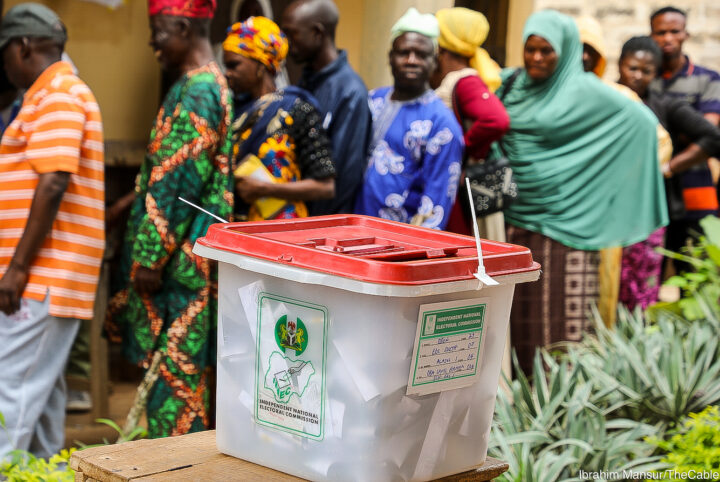Nearly 90 million people are eligible to cast a ballot to elect the country’s next president and choose their representatives in Parliament. The vote comes at a time when Africa’s most populous democracy grapples with a security crisis, a sluggish economy and cash and fuel shortages.
Read More: Nigeria Land Borders Set to be Closed on Election Day
Around 400,000 police and troops will be deployed to protect voters. Polling stations are set to close at 1:30 PM GMT but all voters on queue before 1 can vote the electoral commission said.
The body gave no timeline for results. However, under a 2022 law, the official results have to be confirmed within 14 days of the ballot. For the first time in Nigeria’s modern history, 3 candidates have emerged in the race for the top office usually dominated by 2 parties. With Buhari stepping down after two terms in office, the APC’s Bola Tinubu, 70, a former Lagos governor and political kingmaker, says “It’s my turn” for the presidency.
He faces a familiar rival — PDP candidate and former vice president Atiku Abubakar, 76, who is on his sixth bid for the top job. But the emergence of a surprise third candidate appealing to young voters, Labour Party’s Peter Obi, 61, has thrown the race open for the first time since the end of military rule in 1999. To win the presidency, a candidate must get the most votes, but also win 25 percent in two-thirds of Nigeria’s 36 states.
Read More: Africa’s longest River is Under Threat, Inciting a Domino Chain Reaction
The presidential elections have in the past often been marked by violence, ethnic tensions, vote-buying and clashes between supporters of rival parties. In 2019, hours before polls opened, the Independent National Electoral Commission (INEC) postponed the election by a week because of problems delivering election materials. Today, most experts see INEC as being more prepared. It has introduced biometric voter IDs to help prevent fraud and results will be transmitted electronically.
If no candidate wins, a runoff will take place between the two frontrunners, an unprecedented outcome that some analysts say is a possibility this time around. If a runoff is declared, the vote has to take place within 21 days.
